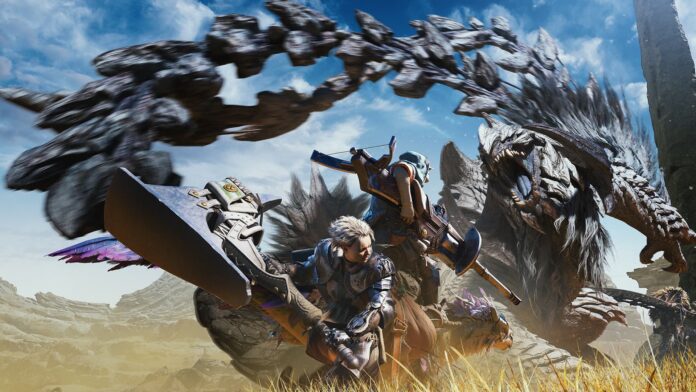Introduction
Game development has undergone a massive transformation in recent years, with artificial intelligence (AI) playing a crucial role in shaping the future of interactive entertainment. From procedural content generation to dynamic storytelling, AI is pushing the boundaries of what games can achieve, making them more immersive, unpredictable, and player-driven than ever before. As we move into 2025, the use of AI in game development is reaching new heights, enabling developers to craft expansive worlds, lifelike NPCs, and adaptive narratives that evolve based on player choices.
In this article, we will explore how AI is revolutionizing procedural generation and storytelling, the latest trends in game AI, and what the future holds for developers and players alike.
Procedural Generation: Creating Limitless Worlds
Procedural generation is a technique in game development that uses AI-driven algorithms to generate game content dynamically rather than manually designing every element. This approach allows developers to create expansive, unique environments, offering endless possibilities for gameplay.
How AI is Enhancing Procedural Generation
- Adaptive Worldbuilding – AI-driven procedural generation in 2025 has advanced beyond simple terrain and map creation. Now, neural networks analyze player behavior and preferences, adjusting world design in real-time to enhance engagement.
- AI-Driven Level Design – Games like No Man’s Sky and Minecraft have pioneered procedural generation, but AI in 2025 enables more structured and meaningful level creation. AI can now balance difficulty, optimize challenge pacing, and ensure smooth progression throughout a procedurally generated world.
- Character and Object Generation – AI-powered procedural generation is no longer limited to environments. Developers now use it to generate NPCs, enemies, quests, and even entire cultures, creating a living, breathing game world with minimal manual intervention.
- AI for Art and Animation – Modern AI models can now generate detailed textures, buildings, and even complex animations, drastically reducing the workload for artists while maintaining high-quality graphics.

Games Leading the Way
- Dwarf Fortress – A groundbreaking game that uses deep AI-driven procedural worldbuilding, simulating entire civilizations.
- Starfield – Bethesda’s ambitious space RPG, featuring AI-assisted procedural planet generation.
- AI Dungeon – A text-based game that uses AI to generate completely unique narratives based on player input.
To explore more about how AI is influencing procedural generation, visit Procedural Content Generation.
AI-Powered Storytelling: The Evolution of Narrative Design
Storytelling in games has historically been pre-scripted, with linear or branching paths determining how a game unfolds. However, with AI-driven storytelling, narratives can now evolve in real-time based on player actions, leading to truly personalized and dynamic gaming experiences.
How AI is Changing Storytelling
- AI-Generated Dialogues and NPC Behaviors – AI-powered NPCs can now hold meaningful conversations, respond naturally to player actions, and evolve over time. With advancements in natural language processing (NLP), NPCs no longer rely on pre-scripted dialogue but instead generate responses dynamically.
- Adaptive Story Arcs – AI algorithms analyze player choices, adjusting storylines in real-time. This makes every playthrough unique and prevents repetitive, predictable narratives.
- Sentiment and Emotional Analysis – Some modern AI tools can analyze the player’s emotions through facial recognition or voice input, adapting the game’s tone, difficulty, or dialogue accordingly.
- Automated Storytelling Assistants – AI-driven writing assistants can help game writers craft richer, more organic narratives, using deep learning models trained on vast storytelling datasets.
Games Leading the Way
- Cyberpunk 2077: Phantom Liberty – AI-enhanced NPCs and dynamic quest progression.
- The Elder Scrolls VI – Rumored to feature AI-driven adaptive storylines based on player interactions.
- Project AI Narrator – An experimental indie project using GPT-powered AI to create entirely AI-generated game narratives.
For further insights into AI-driven storytelling, visit AI in Game Narrative.

The Future of AI in Game Development
As we look ahead to 2030 and beyond, AI is expected to take an even larger role in game development, with advancements such as:
- Fully AI-Generated Games – Some indie developers are experimenting with fully AI-created games, where AI generates not only environments and NPCs but also mechanics, rules, and objectives.
- Personalized Player Experiences – AI will fine-tune gameplay to fit a player’s style, difficulty preference, and emotional state.
- AI-Assisted Game Development – AI tools will handle large portions of coding, bug fixing, and content generation, reducing development costs and time.
- Enhanced Realism with AI Animation – AI-driven animation tools will create ultra-realistic characters and environments, eliminating the need for costly motion capture technology.
To stay updated on the latest trends in AI and gaming, check out AI in Gaming.
Conclusion
Artificial Intelligence has become a game-changer in procedural generation and storytelling, allowing developers to create more immersive, unpredictable, and player-driven experiences. The rapid evolution of AI-driven tools is making game development faster, more efficient, and more creative than ever before. As AI continues to advance, we can expect unprecedented levels of realism, interactivity, and player agency in the gaming landscape of 2025 and beyond.
For game developers and players alike, these advancements signal an exciting future—one where games react to us, evolve with us, and create experiences uniquely tailored to each player.
Are you excited about AI’s role in shaping the future of gaming? Let us know your thoughts!



